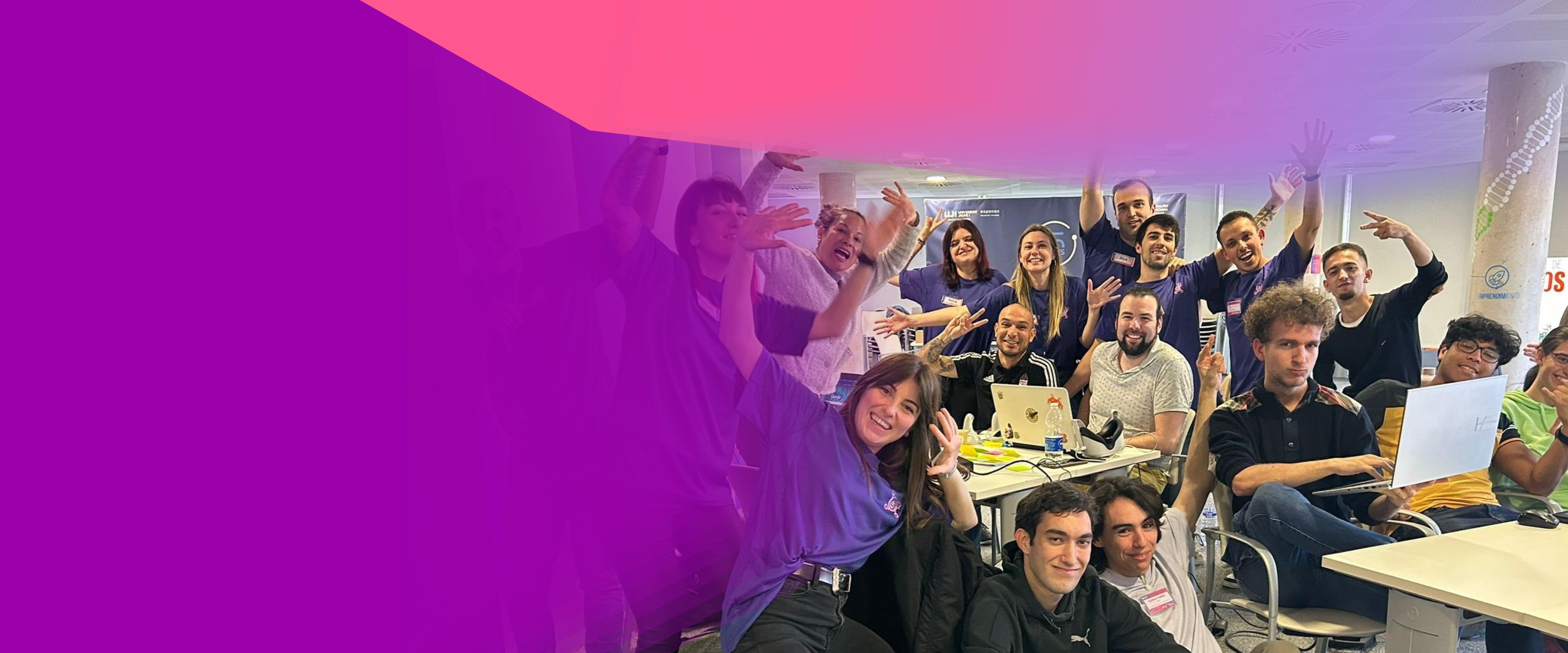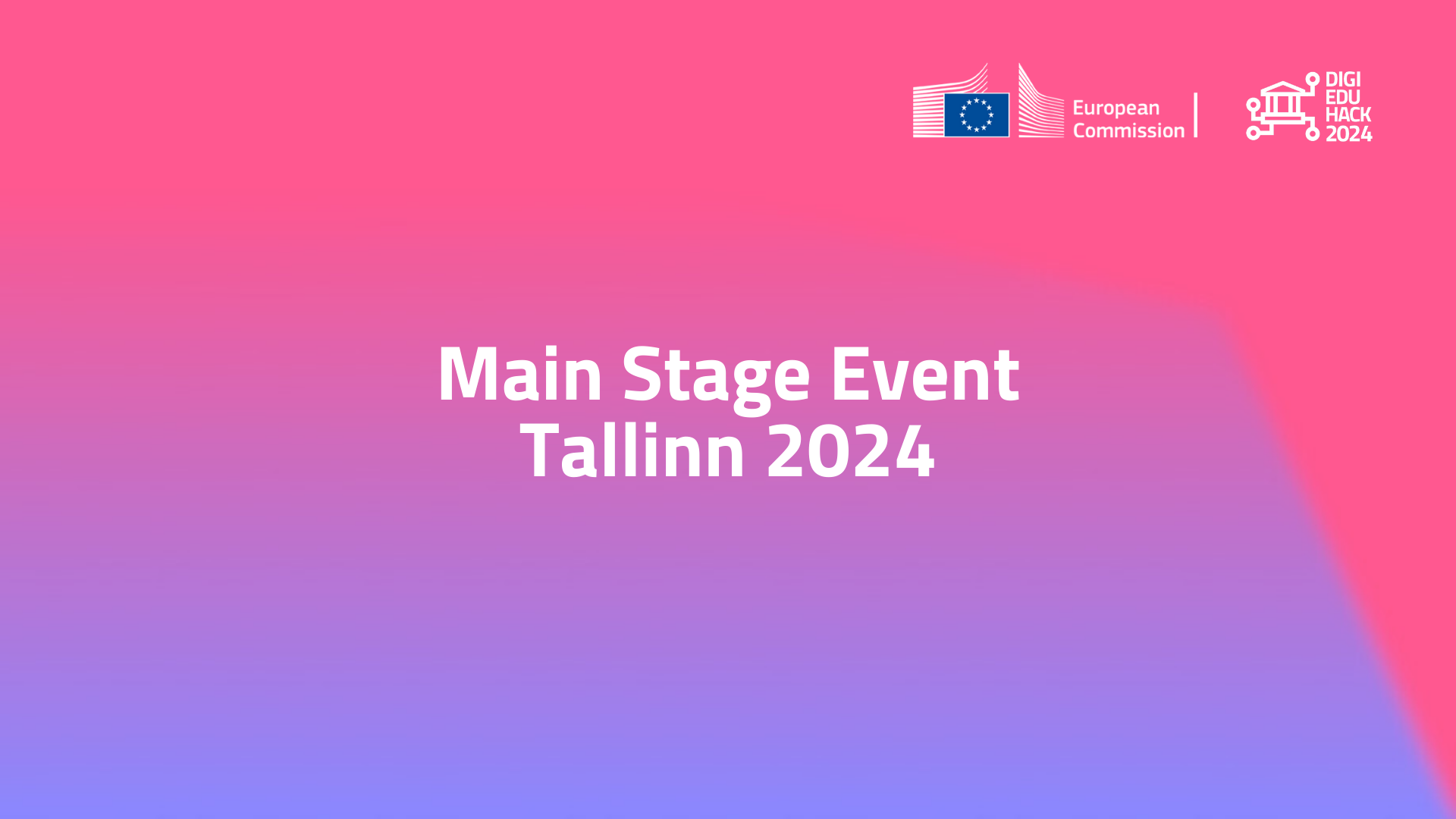Main Stage Event 2024 in Tallinn
The DigiEduHack 2024 Main Stage Event, held on 20 November 2024 in Tallinn, Estonia, was a truly remarkable occasion, bringing together a dynamic mix of policymakers, students, and change-makers to explore the future of digital education. Hosted by Tallinn University, the event offered a platform for inspiring discussions and collaborations, as participants shared their ideas and expertise on how to shape the landscape of learning in the digital age. Packed with engaging presentations on Estonia's digitalisation journey, debates on AI in education and building a digital education ecosystem, and inspiring hackathon testimonials, the event showcased the power of global collaboration in shaping the future of education.
The DigiEduHack 2024 Main Stage Event kicked off with an exciting video recap of the Hackathon Days, giving everyone a chance to relive the incredible moments when participants from all around the world came together to imagine the future of digital education. Witnessing so many creative solutions – 433 in total, developed to address the challenges of digital education was truly inspiring. Antoaneta Angelova-Krasteva, Director for Innovation, Digital Education and International Cooperation at the European Commission set the tone in her opening remarks: "I deeply appreciate the warm hospitality of Tallinn University—Estonia, the heart of digitalisation in Europe. By bringing together digital education enthusiasts around commonly identified challenges, DigiEduHack places learners, educators, developers and digital education enthusiasts in the driver’s seat of digital education”. Estonia’s Digital Legacy: A Keynote Address
Kadri Maasik delivered a compelling keynote reflecting on Estonia's 30-year journey of digitalisation, anchored by the Tiger Leap project: "Digital education is not just about technology; it’s about digital-minded leadership. Estonia's transformation teaches us the critical importance of trust, collaboration, and aligning legal frameworks with technological progress." Her insights highlighted Estonia's pioneering e-government services and the broader lessons for global education systems navigating digital transformation.
Tackling Core Challenges: Panel Insights
The afternoon also featured two dynamic panel discussions. During the first panel on the Building Blocks of an Innovative Digital Education Ecosystem, panelists Georgi Dimitrov, Head of the Digital Education Unit, DG EAC, European Commission, Karol Markiewicz, Chief specialist on digitalisation, Ministry of Education of Poland, Märt Aro, co-Founder Dream Apply, Angela Jafarova (co-founder of Datorium) and Altheo Valentini (DigiEduHack Steering Group member and chair of the board of All Digital) discussed pressing challenges and opportunities in creating an innovative digital education ecosystem. Discussions brought to light that the digital divide across Europe still represents one of the main challenges both in terms of insufficient digital infrastructure and low level of digital skills, as shown by the latest ICILS results. As such, continued, meaningful investment in teacher training, skills development and adequate digital infrastructure is crucial. Speakers also pointed to the need to continue to provide guidance and empower the educators, while keeping a safeguard on issues relating to security and ethics. Furthermore, they highlighted the need to foster trustworthy collaboration at national level between the ed tech sector, the wider education community and the Ministries of Education, in order to ensure that policies reflect the needs and reality on the ground (e.g. by organising yearly roundtables).
The second panel, moderated by Antoaneta Angelova-Krasteva, brought together Sten Kapten (Estonian Ministry of Education and Research and Secretary of the AI Council of Estonia), Lieselot Declercq (D-Teach), Linda Mannila (University of Helsinki), Aanvi Tandon (Girls Go Circular) and Lidija Kralj (EduConLK). Speakers explored the opportunities and challenges of integrating AI into education, focusing on ethics, collaboration, and proper usage to ensure that technology serves as a support rather than a threat. Key takeaways concerned the need to use and experiment with AI in order to understand what’s the best way to go. From a student perspective, it was mentioned how crucial it is to integrate programs such as Girls Go Circular or modules on AI into the school education programmes. AI being one of the technologies defining our era, there is a strong need to continue to experiment, collaborate and inspire each other. It is also important to share the bad experiences as well as the good ones. Furthermore, the need to be proactive rather than reactive was highlighteed and for this it is important that ethics by design are considered, so that tools are developed already taking into account our guardrails.
Further to these inspiring discussions and presentations, attendees also had the opportunity to hear from past DigiEduHack participants through "Taste of a Hackathon" testimonials, in which some of this year’s participants shared their inspiring stories and gave an insight on how it felt to be part of the Hackathon days. And in order to keep the energy high, an interactive flash “idea-thon” was organised, where online and onsite participants joined forces to brainstorm new solutions for the use of AI in education. It was a day full of inspiration, collaboration, and exciting new ideas!
Closing Reflections
KristiKlaasmägi, Vice-Rector for Educational Innovation at Tallinn University, concluded the event with a powerful message: "Hackathons are about connection. These initiatives create unique environments where diverse minds co-create solutions, amplifying connections and driving lasting impact."
One of the most inspiring aspects of the event was witnessing the diverse and passionate group of people involved in DigiEduHack. From teachers and education professionals to students, policymakers, global ambassadors, mentors or entrepreneurs, it was a powerful reminder of how much can be achieved when people from different generations, backgrounds, and countries come together to shape the future of education. This collective effort serves as a powerful reminder of what can be achieved when we work together to create something new and meaningful in education. The journey does not stop here, there is so much more to come, from the announcement of the local winners to the excitement of seeing which teams will make it to the finals and meeting the global winners after that. DigiEduHack is not just about a single hackathon—it is about building a global community that will continue to push the boundaries of education for years to come.

